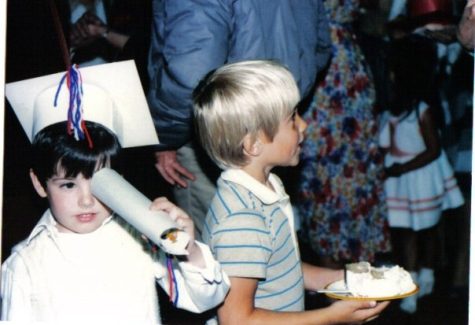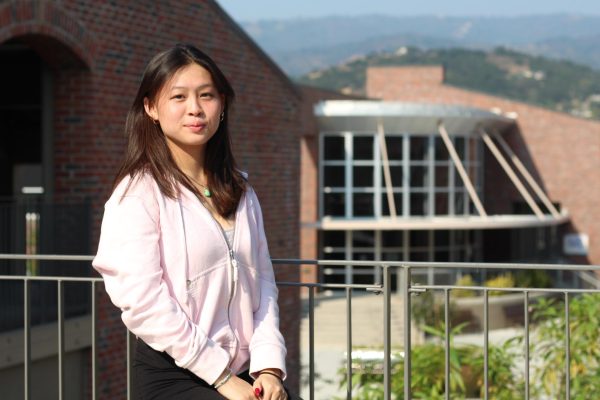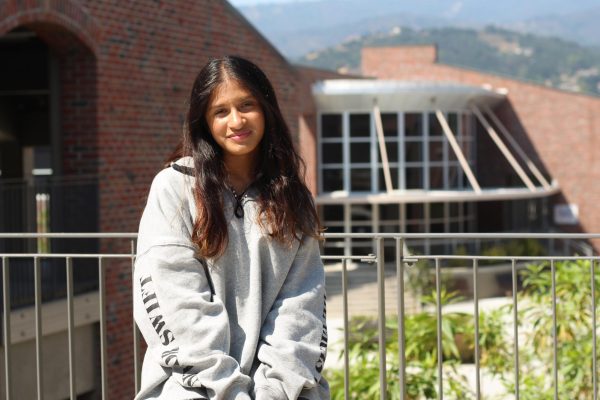Staff stories: Always a pirate at heart
Mark Carpenter shares life-defining tales of ignorance, curiosity and gratitude
September 30, 2022
Honors American Literature, World Studies and AVID teacher Mark Carpenter explains how their childhood has shaped their teaching style. From childhood idols to cult-like experiences, they share moments that have impacted their values.
Ignorance:
MC: I have a memory that sticks with me. It’s mortifying, but it speaks to who I try to be. As an educator, I try very hard to listen to my students, to consider different viewpoints [and] to provide students with a variety of voices on the subject that represent a range of experiences beyond the dominant [culture]. That was not my experience in school. I had a friend in fourth grade, his name was Sudhir, and he was Indian. And thanks to my existing in the California public school system through fourth grade, it did not occur to me that there were Indians from India in the United States. That when somebody said, “I’m Indian,” they did not mean, “I’m Native American.” I was friends with this kid. He was a cool kid. And it’s not like he was the only dark skinned kid in my class or anything like that. I was part of a fairly diverse [group] for a majority white, suburban school. And anyways, I was friends with Sudhir, and he invited me over to his home, and I was very excited. I was going to go for dinner and a sleepover and he said to me, “Have you ever had Indian food before?” and I said, “No, and I’ve never been inside of a teepee, either. I’m really excited.” Yep, yeah. It’s funny, but it’s not “haha-funny.” Almost everything I’ve done as an educator keeps that moment in my mind — to just recognize and try to correct the blind spots that people can have when they’re presented with too narrow of a narrative about what the world is like and who’s in the world and what their experiences are.
Part of it is this real effort that’s by no means just me, of an overall project, happening in this school, of letting go of literary whiteness. Taking the Honors American Literature curriculum, [for instance], the first year I taught the course, there was one non-white author. We taught Lorraine Hansberry’s “Raisin in the Sun,” which is an amazing play, but led to students discussing the play [and] talking about racism in America only in the past tense. There’s a great deal more work to do of simply cutting down the number of so called American classics that we teach that are fine pieces of literature each in their own right [but] create an overwhelming whiteness when taken in together. [We’re] trying to bring in voices that represent as broad [of] a spectrum of paths as possible of American experience. Being open with students about my own experiences and learning process and horrifyingly embarrassing missteps [show] that nobody grows up in America, no white person grows up in America, without absorbing some racism.
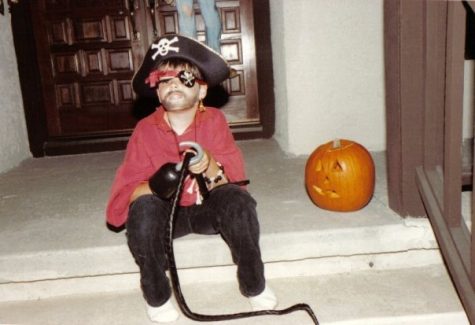
Gratitude:
MC: The person that had the most influence on me during my childhood … it’s hard to say [because] I didn’t know I looked up to him at the time, but this would be my, for lack of a better word, grandfather. [He was] a man who had been friends with my mother’s father and moved in with my grandmother after he died and lived with my family while I was growing up. His name was Jimmy and he’d lost his hearing in a childhood accident and couldn’t read, couldn’t write and could barely speak. In spite of that, he made friends everywhere. Both my parents worked fairly long hours, and he was always around when I was a kid. He was very protective of me. He was the one who would drive me to soccer practice, and I learned to drive in his car. He’d been dealt a pretty not great hand by life and was so generous with others, was so kind, protective [and] nurturing, all of that. I didn’t know it at the time, but he’s been the biggest influence on my life. When people ask me how I grew up the way I grew up [or] how I got to be where I am, I point back at him.
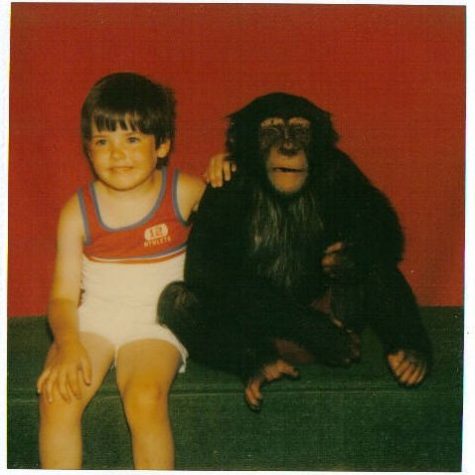
Curiosity:
MC: I liked taking things apart to see how they worked, much to others’ frustration because oftentimes I wasn’t so good at putting things back together.
EE: What are some examples of things that you took apart?
MC: Radios, literally anything that was held together with screws or I could find the seams. I remember taking apart our landline telephone. I remember being in the garage and messing around with my parents’ cars, taking the dials off of the radio, and in that exploration process, I once broke the hood ornament off of my father’s car and then just balanced it there on the hood. The next day when he was backing out of the garage, the hood ornament fell off and I was like, “Oh, what happened? It’s a great mystery!” I remember when my parents got a large television, their old TV had an antenna and a dial that went “click, click, click” from station to station. I took that apart. I was home in the afternoon with Jimmy [my grandfather], and if I was in my room, he didn’t know or hear what I was doing. And I took too much advantage of that as a kid.
MC: My wife is concerned that someday I’ll get swept into joining a cult. Because when somebody wants to talk to me, I want to listen. And when somebody wants to share their perspective, I want to listen, and I want to ask some follow up questions. I forget … maybe I saw an ad at the library about a free meditation class. So one Sunday morning, I [drove] out to this facility in Palo Alto, maybe Mountain View. Everyone’s very friendly and there’s this nice meditation class [that’s] teaching various postures for sitting in meditation and different methods of body scanning or counting the breath or trying to observe and acknowledge one’s thoughts as they come and go without a sense of judgment or attachment. All great stuff, but as the program goes on, there’s a friendly invitation to join them for a healthy vegetarian meal, and talk about their outreach programs and the vision of their founder who (I don’t have all the pieces together in my head) but he was maybe the second coming of Jesus Christ or involved in unifying Buddhism and Hinduism … it’s really difficult to tell. And I think space travel was involved. So I began to observe these thoughts that I had of, “Oh, I’m being recruited for a cult” and observe those without judgment and I became very attached to those thoughts, and got out. Nobody tried to stop me from leaving or anything like that, but I also didn’t give them my email address to stay on their mailing list.
